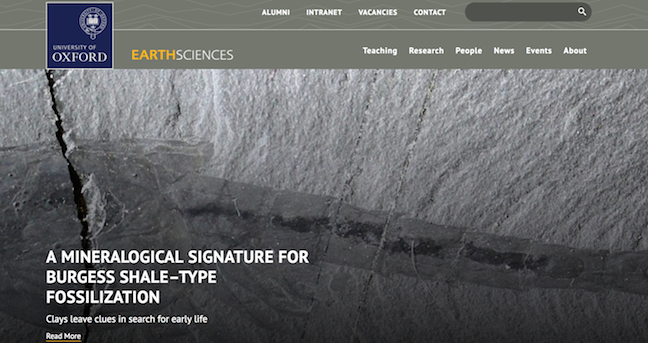
Department of Physics
Within the Department of Physics, work related to planetary science, including exoplanets, takes place primarily in the two subdepartments Astrophysics and AOPP (Atmospheric Oceanic and Planetary Physics).
Exoplanets, Solar System Planets, Early Earth, Comparative Planetology
Long ago, study of Solar System planets put Earth in the broader context of planets as a general class of phenomena, and opened up the field of Comparative Planetology. With the dawning era of exoplanet discovery and characterization, which is barely past its second decade, the opportunities for comparative planetology have expanded beyond the wildest dreams of researchers just a short time ago. With new missions in space, and new telescopes on the ground, this subject is poised for a renewed phase of expanded intellectual opportunities. The need to consider a much wider range of possible types of planets, beyond what has been encountered in the Solar System, has deepened the need for understanding of all aspects of the fundamental physics and chemistry that govern the nature of planets, whether habitable or not. This has called for deeper collaborations between astrophysics, atmospheric science, planetary mission development, traditional Earth Science disciplines and even evolutionary biology. The Oxford Network for Planets exists to foster such collaborations, first within Oxford, and eventually expanding to engage with a number of partner institutions within the U.K. and the rest of Europe. Exoplanets, Solar System planets and aspects of Earth science that illuminate broad planetary physics principles are all within our remit.
Initially the Oxford Network for Planets has focused on collaborations with the Astrophysics and AOPP subdepartments of Physics, and the Department of Earth Science, but will eventualy be expanded to other departments in which work related to exploration of planets and understanding their behavior is done. Likely future additions include Maths, Chemistry and Zoology (the home of most evolutionary biology work at Oxford).

Within the Department of Physics, work related to planetary science, including exoplanets, takes place primarily in the two subdepartments Astrophysics and AOPP (Atmospheric Oceanic and Planetary Physics).

What kinds of atmospheres are outgassed from the interior of a planet? What kind of atmosphere would exist in equilbrium with a magma ocean? What geochemical processes act as sinks of the greenhouse gas carbon dioxide? What governed the timing of buildup of oxygen on Earth? Questions of this sort have long been studied in connection with Earth system history and Solar System planets, but are now coming into play for exoplanets as well. Research on these and related topics is conducted primarily within the Department of Earth Sciences, often in collaboration with investigators in AOPP or Astrophysics.